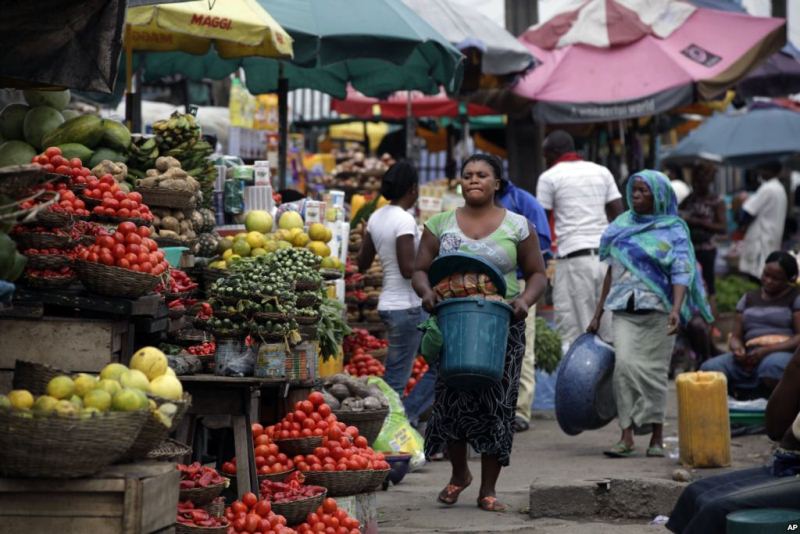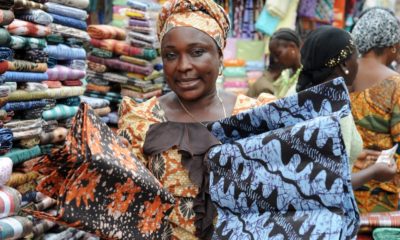- Inflation Rate Faces Risks, Say Emefiele, Others
The Governor of the Central Bank of Nigeria, Mr Godwin Emefiele, has said the nation may see a reversal of the decline in inflation rate if the risks threatening favourable macroeconomic conditions are not addressed.o
In a communiqué of the Monetary Policy Committee meeting of May 21 and 22 and the personal statements of members, which were released on Monday, Emefiele, who doubles as the chairman of the eight-man MPC, identified the current budget outlay of over N9tn, the anticipated huge election spending, and the ongoing interest rate hike by the United States Federal Reserve as risks threatening the Nigerian economy.
According to him, inflation is declining but remains high and outside acceptable band, with probable risk of upturn in the short-term.
He described the desire for the concurrence of exchange rate stability, low inflation and low interest as unfeasible because of the structural realities of the economy.
Emefiele said, “For a few analysts, the observed moderation in inflation rate provides justification for policy ease; however, the prevailing realities, especially the double-digit inflation and elevated short-term inflation expectations, do not support this.
“While the trend of disinflation is encouraging, the observed moderation in inflationary pressure is, however, threatened by waning base-effects and the liquidity injections anticipated in the second-half of the year. It is, therefore, imperative to ensure that the path of disinflation is not reversed.”
The CBN governor stated that his immediate predisposition would be for further tightening of the domestic policy stance to rein in expected inflation and ensure foreign exchange market stability.
The Deputy Governor, Corporate Services, CBN, and a member of the MPC, Edward Adamu, said there was a need to build buffers on both fiscal and monetary sides in preparation for a possible downturn.
He stated that the outlook for inflation in the rest of the year appeared largely uncertain owing to the likely surge in domestic liquidity arising mainly from expected fiscal injections and election-related spending.
Adamu said, “The 2018 appropriation passed by the National Assembly promises to be highly expansionary because a sizable portion of the budget would have to be deficit-financed.
“In addition, the payment of contractor debts and the prospects of a new minimum wage down the road, somewhat further complicates the outlook for domestic liquidity. When these likely fiscal injections are taken into account, the outlook for inflation that emerges becomes scarier.
“Therefore, from a financial stability standpoint, inflation threats or risks to the naira exchange rate stability are to be mitigated upfront in order to sustain and deepen the resilience of the industry.”
The Deputy Governor, Financial System Stability, Aishah Ahmad, said, “The ongoing implementation of the 2017 budget, the substantial implementation of the 2018 federal budget within a limited time frame, and the 2019 election season, which have historically had some inflationary impact, are potential risks to the positive trend for inflation.”
She described the positive trajectory of key economic variables such as growth, inflation and exchange rates as gratifying, adding that attention should be paid to further threats to the gains, either in the form of a potential US-China trade war, inflationary fiscal shocks, or flow reversals from actions by the US Fed.
According to her, a further tightening of the monetary policy stance is not out of place to maintain vigilance.


 Naira4 weeks ago
Naira4 weeks ago
 Naira4 weeks ago
Naira4 weeks ago


 Naira4 weeks ago
Naira4 weeks ago




 Naira3 weeks ago
Naira3 weeks ago
 Commodities4 weeks ago
Commodities4 weeks ago


 News3 weeks ago
News3 weeks ago


 Banking Sector4 weeks ago
Banking Sector4 weeks ago
 Travel4 weeks ago
Travel4 weeks ago




















